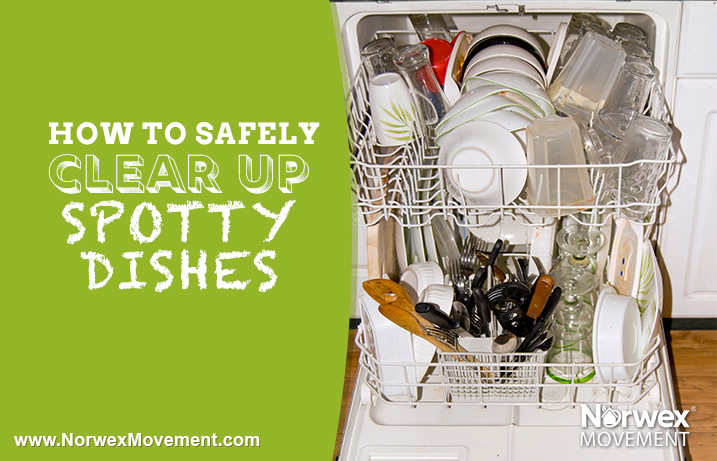

If you live in an area with hard water then you’ve probably experienced spotty, filmy dishes and glassware that your poor dishwasher just can’t seem to clear up. Those cloudy spots are the result of minerals (usually calcium or magnesium carbonates), that are left behind by water droplets as they dry.
But before you blame your dishwasher, you may want to try a rinse aid. A rinse aid works by reducing the water’s surface tension so that it flows off your dishes in thin sheets, instead of forming lingering droplets that leave spots as they dry.
Since a rinse aid helps the water slide off more quickly, your dishes dry faster. In fact, a rinse aid could also be thought of as a drying aid!
Glad you asked; no, they are not. According to the Environmental Working Group, many typical rinse aids contain ingredients that may pose “significant” or “likely” hazards to health or the environment, such as:
With questionable ingredients like these in some popular rinse aids, you may think the better option is to just put up with spotty glasses and cups. Think again! Norwex’s new Rinse Aid gets your glasses, plates and cups sparkly even in the hardest water. Best of all its biodegradable, plant-based ingredients deliver spot-free dishes every time with no harmful residues to pollute the ecosystem (or wind up in your family’s food)!

Spotty dishes may be due to other reasons besides hard water.
For example, you could be using too much (or too little) dish detergent. Or your water temperature may be too low.
If you know you don’t have hard water, but your dishes are coming out of the dishwasher spotty, try using a little less (or more) detergent and/or running your dishwasher on a hotter setting.
If your soaps, shampoos and detergents do not lather well it could be due to hard water. Another way to tell is if you see calcium deposits (aka limescale) on faucets, shower doors or even small appliances like coffeemakers and teapots. Also, unusually high energy bills can point to hard water, as limescale can clog your water-heating system, making it less efficient.
Resources:
Love it!
Great article.
Thanks Lia!
Love that you highlight that detergent residue can wash down the drain and make its way into the ecosystem. Becoming more aware post after post. Thank you Amy.